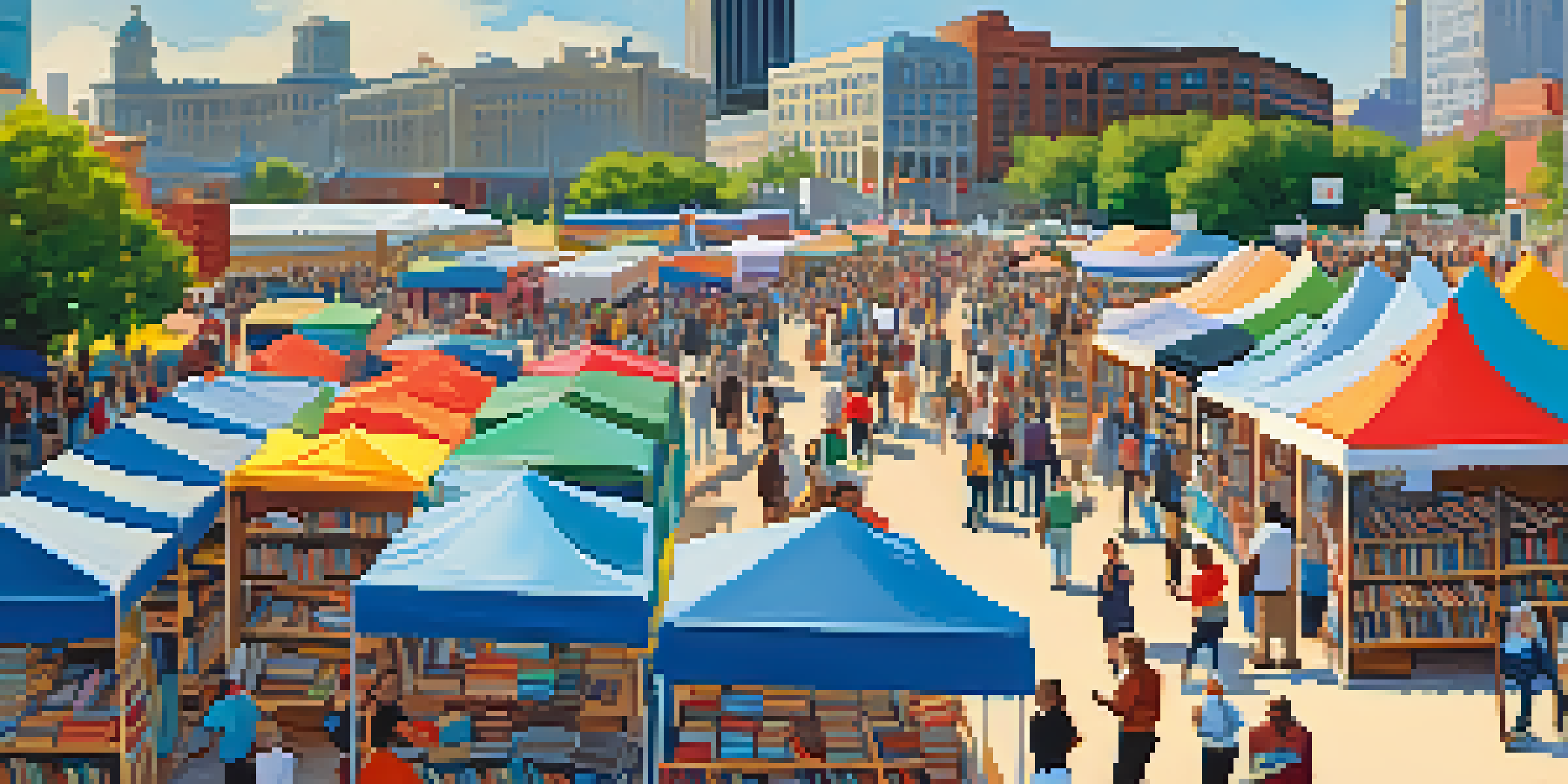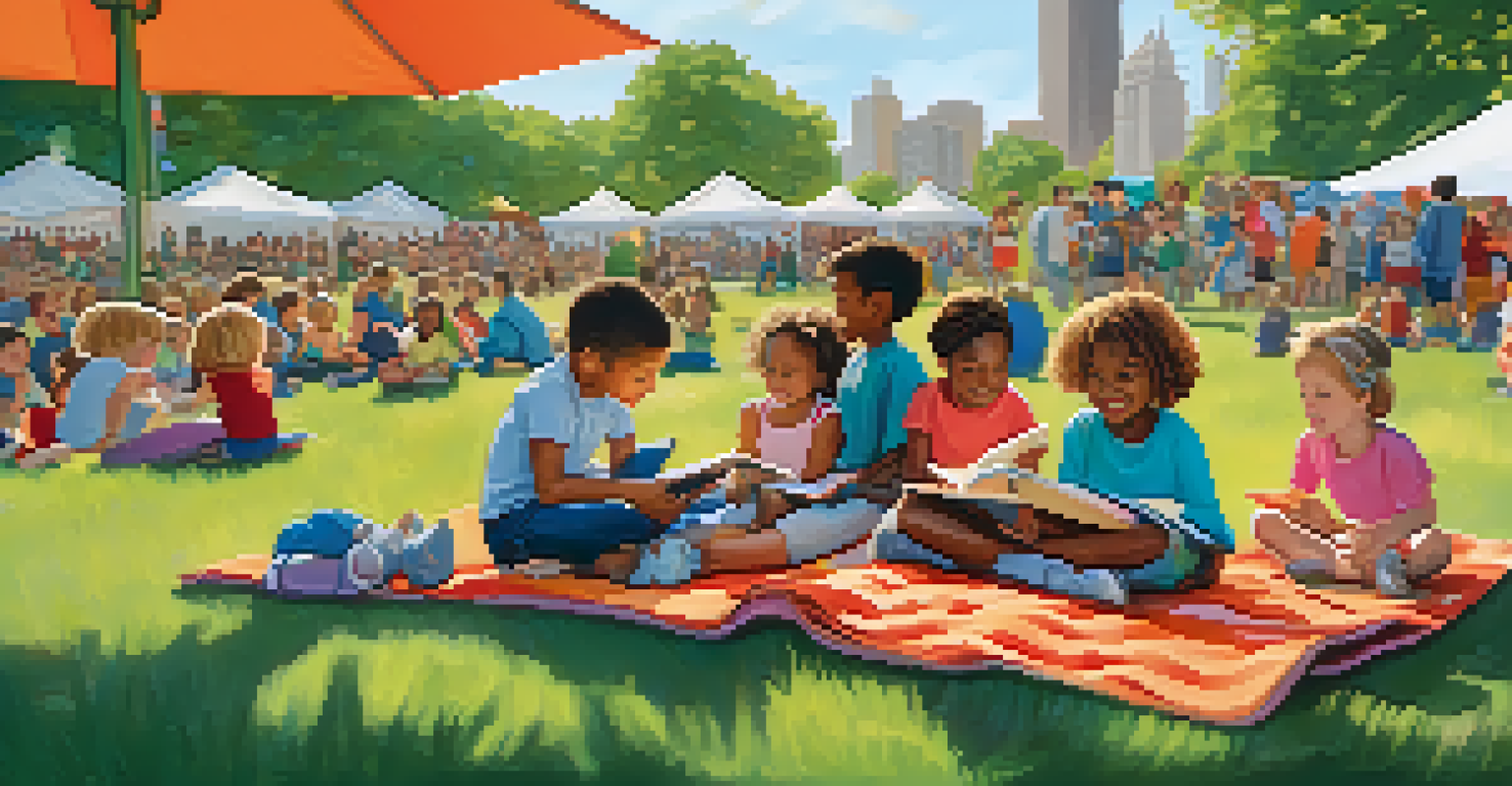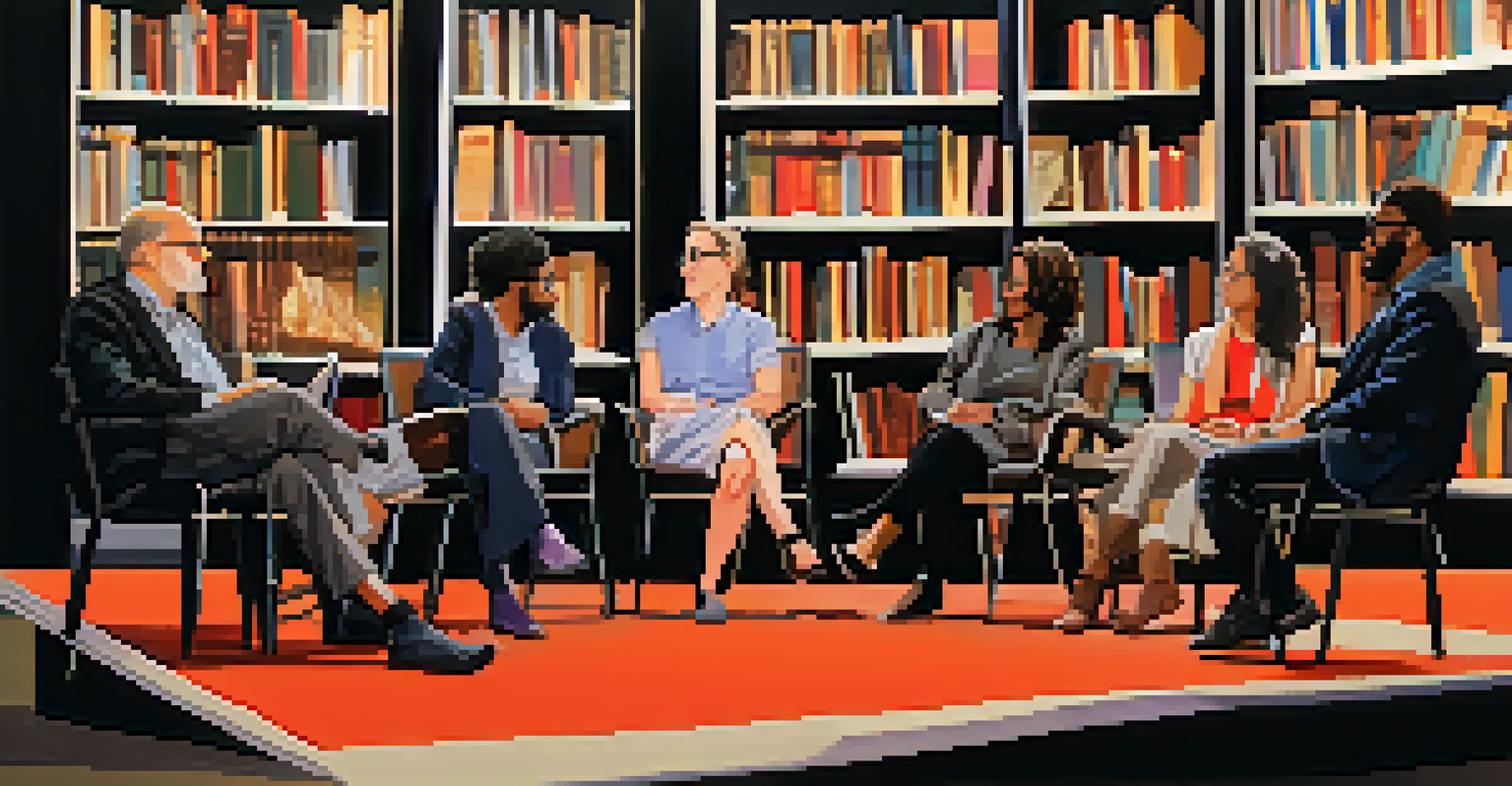The Significance of Book Festivals in Chicago's Culture

The Heartbeat of Chicago's Literary Landscape
Book festivals in Chicago serve as a vibrant pulse in the city's rich literary scene. They act as gathering points for readers, writers, and publishers, creating a community that thrives on shared stories. This collective energy fuels the city's cultural identity, showcasing Chicago not just as a hub for architecture and art, but also as a beacon for literary exploration.
Books are a uniquely portable magic.
Events like the Chicago Tribune Printers Row Lit Fest and the Chicago Book Expo highlight this literary heartbeat. These festivals bring together diverse voices, allowing attendees to engage with authors and discover new genres. The experience of browsing stalls and participating in readings fosters a sense of belonging and connection among book lovers.
Moreover, these festivals invite local authors to share their narratives, ensuring that the stories of Chicago reflect its unique character. This interplay of local and national voices enriches the city's literary tapestry, making each festival a crucial part of Chicago's cultural fabric.
Celebrating Diversity Through Literature
One of the most significant aspects of Chicago's book festivals is their commitment to diversity. Festivals often highlight a wide array of genres, themes, and cultural backgrounds, allowing for a rich tapestry of voices to be heard. This celebration of diversity not only reflects the city's multicultural population but also enriches the literary world.

Through panels and discussions, festivals provide platforms for underrepresented authors to share their stories. These moments create opportunities for dialogue and understanding, encouraging attendees to engage with perspectives different from their own. It's a reminder that literature can bridge gaps and foster empathy between diverse communities.
Community Through Literature Festivals
Chicago's book festivals create a vibrant community for readers and writers, fostering connections and a shared love for storytelling.
For example, panels focusing on topics like social justice, immigration, and identity resonate deeply with Chicago’s residents. They not only entertain but also educate, making these festivals an essential part of the cultural landscape and a catalyst for social change.
Fostering a Love for Reading in All Ages
Book festivals in Chicago are not just for adults; they are designed to inspire a love for reading in children and young adults, too. Many festivals include dedicated children's areas with storytelling sessions, engaging activities, and book giveaways. This focus on youth helps cultivate a new generation of readers and writers.
Literature is a way of life, and it is a way to connect with people.
By providing interactive experiences, festivals make literature accessible and fun for younger audiences. Children can meet their favorite authors, participate in workshops, and explore books in an inviting environment. This early exposure to literature plays a crucial role in shaping their future reading habits.
Involving schools and local libraries in these festivals also extends their reach. Programs that invite students to attend or participate help reinforce the importance of literacy in everyday life and encourage lifelong learning through reading.
Networking Opportunities for Writers and Readers
Chicago's book festivals serve as invaluable networking opportunities for aspiring and established writers alike. Authors can connect with publishers, agents, and fellow writers, sharing insights and resources that can advance their careers. These connections are often the stepping stones to new collaborations and projects.
Readers benefit from this networking too; they gain access to workshops and seminars that enhance their understanding of the writing process. For many, these interactions provide a glimpse into the literary world, demystifying the path to publication and helping them understand what it takes to become a successful writer.
Diversity is Celebrated in Literature
These festivals highlight diverse voices and themes, promoting understanding and empathy through literature's rich tapestry.
Furthermore, the relationships formed during these events often extend beyond the festival, leading to ongoing collaborations and community support. This sense of camaraderie fosters a nurturing environment that encourages creativity and innovation within Chicago’s literary community.
Promoting Local Authors and Publishers
Local authors and publishers find a significant platform at Chicago's book festivals. By showcasing their work, they can reach a wider audience and gain recognition within the literary community. This focus on local talent strengthens the cultural identity of the city and fosters pride among residents.
Festivals often include book signings, readings, and discussions that allow local authors to connect with their audience. These opportunities are crucial for authors who may not have the resources for extensive marketing campaigns, providing them with a chance to share their stories firsthand.
Moreover, the visibility gained at these festivals can lead to further opportunities, such as invitations to speak at other events or collaborations with local businesses. Supporting local authors not only enriches the literary scene but also stimulates Chicago's economy by promoting homegrown talent.
Encouraging Community Engagement and Participation
Book festivals in Chicago go beyond just celebrating literature; they actively encourage community engagement. By inviting residents to participate in various activities, from book clubs to writing contests, festivals foster a sense of ownership and pride in the literary culture. This engagement helps bridge gaps between different communities within the city.
Additionally, many festivals collaborate with local organizations and schools to create inclusive programs. These partnerships ensure that everyone, regardless of age or background, has an opportunity to engage with literature. Such initiatives highlight the importance of collective participation in fostering a vibrant literary community.
Supporting Local Authors and Talent
Chicago's festivals provide crucial platforms for local authors and publishers, enhancing their visibility and strengthening the city's cultural identity.
Community engagement also cultivates a sense of belonging among attendees. When people come together to celebrate books and storytelling, it creates an environment where ideas flow freely, and connections are made, enriching the cultural fabric of Chicago.
The Future of Book Festivals in a Digital Age
As we navigate an increasingly digital world, the future of book festivals in Chicago faces both challenges and opportunities. While online platforms have made literature more accessible, they also pose a threat to traditional in-person events. However, many festivals have adapted by incorporating virtual elements, allowing them to reach a broader audience.
This hybrid model can enhance the festival experience, offering live-streamed author talks and virtual panel discussions. It also opens doors for attendees who might not be able to travel to the festival in person. By embracing technology, these events can continue to thrive and evolve in a changing landscape.

Ultimately, the enduring appeal of book festivals lies in their ability to create personal connections. While digital platforms are valuable, nothing quite compares to the energy of meeting an author face-to-face or sharing thoughts with fellow readers. As Chicago's book festivals adapt, they will undoubtedly continue to play a vital role in the literary community.